Table of Contents
- 1 Key Takeaways:
- 2 Why Is Lubrication Important for Garage Doors?
- 3 What Are the Different Types of Lubricants for Garage Doors?
- 4 Which Lubricant Is Best for Garage Doors?
- 5 How to Properly Lubricate Your Garage Door?
- 6 What Are the Common Mistakes When Lubricating Garage Doors?
- 7 How Often Should You Lubricate Your Garage Door?
- 8 Frequently Asked Questions
Garage doors are an essential component of any home, providing security and convenience. To ensure their smooth operation, proper lubrication is crucial. In this article, we will explore the importance of lubrication for garage doors and discuss the different types of lubricants available.
From silicone-based lubricants to graphite-based options, we will delve into the characteristics of each, guiding you towards the best choice for your garage door. We will provide valuable insights on how to properly lubricate your garage door and highlight common mistakes to avoid. Whether you are seeking long-term lubrication, noise reduction, or cold weather performance, we will help you determine the best lubricant for your specific needs.
As always, Dreifuss Fireplaces (& Doors) is here to help!
Join us as we unravel the secrets to maintaining a well-lubricated and efficient garage door.
Key Takeaways:
- Silicone-based lubricants are the best overall choice for garage doors due to their versatility and longevity.
- Lithium grease is ideal for long-term lubrication and can withstand heavy-duty use.
- Teflon-based lubricants are recommended for reducing noise, while graphite-based lubricants are best for cold weather conditions.
Why Is Lubrication Important for Garage Doors?
Proper lubrication is essential for the smooth and efficient operation of garage doors. Lubricants play a crucial role in reducing friction, preventing rust and corrosion, and ensuring the longevity of door springs, rollers, hinges, tracks, locks, and bearings.
Door springs are particularly susceptible to wear and tear due to the repeated tension and release during the door’s movement. Regular application of lubricants helps in minimizing the strain on the springs and extends their lifespan. Lubricating the rollers, hinges, and tracks reduces the resistance experienced during the opening and closing of the door, resulting in quieter and smoother operation.
Proper lubrication of locks and bearings aids in preventing them from seizing up, which can impede the overall functionality of the garage door. The type of lubricant used is also crucial; for example, silicone-based lubricants are ideal for garage door applications as they do not attract dust and dirt, keeping the components clean and functioning optimally.
Need some help? Contact the experts at Dreifuss Fireplaces (& Doors) for all of your garage door answers.
What Are the Different Types of Lubricants for Garage Doors?
In terms of garage door lubrication, various types of lubricants are commonly used to ensure optimal performance and maintenance. These include silicone-based lubricants, white lithium grease, petroleum-based lubricants, and more, each with its unique benefits and applications.
Silicone-based Lubricants
Silicone-based lubricants are a popular choice for garage door maintenance due to their exceptional lubricating properties and versatile application. One prominent example is the WD-40 Specialist Silicone Lubricant, known for its effectiveness in ensuring smooth and quiet door operation.
These lubricants offer several advantages, including their resistance to extreme temperatures, which prevents freezing in cold weather and maintains consistent performance in hot conditions.
Additionally, silicone-based lubricants provide excellent water repellency, preventing rust and corrosion on metal components and extending the lifespan of garage door mechanisms.
When applying these lubricants, it’s important to follow best practices, such as cleaning the door tracks and applying a thin, even coat to ensure optimal coverage and performance.
Lithium Grease
Lithium grease is a reliable choice for lubricating garage door components, including door springs, rollers, hinges, tracks, locks, and bearings. The Genie Screw Drive Lube is a notable product known for its long-term lubrication benefits in this category.
When applied to door springs, lithium grease helps reduce friction and wear, thereby extending the lifespan of these critical components. For rollers and hinges, it provides smooth operation, preventing squeaks and ensuring seamless movement. The tracks benefit from the protective layer of lithium grease, promoting easier opening and closing of the garage door.
White Lithium Grease
White lithium grease is a versatile and durable lubricant suitable for DIY garage door maintenance. A prime example is the Clopay Synthetic Pro Lube, known for its effectiveness in ensuring smooth and efficient door operation through its application.
In terms of garage door lubrication, white lithium grease offers several advantages. It possesses excellent adhesive properties, adhering firmly to metal surfaces, which reduces the need for frequent reapplication. Its water and heat resistance make it perfect for withstanding the varied environmental conditions of a garage.
Using a high-quality product such as the Clopay Synthetic Pro Lube ensures optimum protection for moving parts, reducing friction and wear over time.
Teflon-based Lubricants
Teflon-based lubricants are known for their excellent noise reduction properties, making them a favorable choice for garage door maintenance. The CRC Extreme Duty Silicone Lubricant is a notable product recognized for its noise reduction capabilities in this category.
When applied to hinges, rollers, and tracks, Teflon-based lubricants create a smooth and quiet operation for garage doors, reducing friction-induced squeaks and creaks. This not only enhances the overall user experience but also minimizes disruptive noise, particularly in residential settings.
Users of CRC Extreme Duty Silicone Lubricant often praise its ability to soften mechanical sounds and promote a serene environment. By coating the moving parts with a thin layer of Teflon, these lubricants help diminish vibrations and eliminate irritating, unpleasant noises.
Graphite-based Lubricants
Graphite-based lubricants are well-suited for garage door maintenance in cold weather conditions, providing reliable performance and protection. The National 400-HD from Blaster Chemical Company exemplifies the effectiveness of graphite-based lubricants in this scenario.
One of the key advantages of using graphite-based lubricants in cold weather is their ability to withstand extreme temperatures without compromising their efficacy. The microscopic layers of graphite offer exceptional lubrication and create a protective barrier against moisture and ice accumulation, ensuring smooth operation of garage doors even in freezing conditions.
Graphite-based lubricants like the National 400-HD are non-sticky and do not attract dirt and dust, contributing to longer-lasting and more efficient garage door maintenance.
Which Lubricant Is Best for Garage Doors?
Determining the best lubricant for garage doors depends on specific requirements and preferences. Factors such as smooth operation, noise reduction, and cold weather performance influence the choice between silicone-based, lithium grease, white lithium grease, Teflon-based, and graphite-based lubricants, making it essential to consider a comprehensive buying guide for informed decisions.
Best Overall: Silicone-based Lubricants
Silicone-based lubricants stand out as the best overall choice for ensuring smooth and efficient operation of garage doors. Their versatile application, maintenance benefits, and effectiveness in enhancing smooth operation make them a top-tier option, with products like WD-40 Specialist exemplifying their exceptional performance in this category.
Unlike traditional petroleum-based lubricants, silicone-based options do not attract dust or dirt, effectively reducing the need for frequent reapplication and avoiding the buildup of residue, which can impede the proper functioning of garage doors. Their resistance to extreme temperatures ensures consistent performance in various weather conditions, offering long-lasting lubrication and protection against rust and corrosion. This makes them a reliable choice for maintaining the functionality and lifespan of garage door components, prolonging the need for repairs and replacements.
Best for Long-term Lubrication: Lithium Grease
Lithium grease emerges as the best choice for long-term lubrication of garage door components, offering durable performance and protection for door springs, rollers, hinges, tracks, locks, and bearings. Notable products like Genie Lube Large Tube exemplify the long-term lubrication benefits of lithium grease in this context.
The exceptional adhesion and water resistance of lithium grease make it suitable for the demanding conditions of garage door operation. Its ability to withstand high pressure and temperature variations ensures consistent lubrication for extended periods, reducing maintenance frequency. Genie Lube Large Tube, with its advanced formula, ensures smooth and silent door movement, prolonging the lifespan of critical components.
Best for Heavy-duty Use: White Lithium Grease
White lithium grease is the optimal choice for heavy-duty use in garage door maintenance, offering robust performance and versatility for DIY applications. Products like Clopay Synthetic Pro Lube are recognized for their effectiveness in heavy-duty lubrication, making them the top choice in this category.
With its superior adherence and ability to withstand heavy loads and extreme temperatures, white lithium grease provides long-lasting lubrication and corrosion protection, essential for ensuring smooth garage door operation. Its versatility extends to various metal-to-metal and metal-to-plastic applications, making it a valuable asset for general household maintenance as well.
The specifically formulated Clopay Synthetic Pro Lube not only ensures quiet operation but also eliminates squeaks and prolongs the life of the mechanical components, such as springs and hinges. Its non-staining formula makes it suitable for both indoor and outdoor use, adding to its convenience and utility in diverse situations.
Best for Noise Reduction: Teflon-based Lubricants
Teflon-based lubricants are the ideal choice for noise reduction in garage door operation, offering exceptional performance in ensuring a quieter environment. Products like CRC Extreme Duty Silicone Lubricant exemplify the noise reduction benefits of Teflon-based lubricants in this category.
The unique composition of Teflon-based lubricants provides a smooth and silent operation for garage doors. The low-friction properties of these lubricants reduce the metal-on-metal contact, thereby minimizing squeaks and creaks.
By forming a protective layer on the moving parts, Teflon-based lubricants eliminate vibrations and rattling, resulting in a serene garage environment. CRC Extreme Duty Silicone Lubricant, with its advanced Teflon formula, ensures long-lasting noise reduction benefits.
Best for Cold Weather: Graphite-based Lubricants
Graphite-based lubricants excel in cold weather conditions, making them the top choice for ensuring reliable garage door operation in low temperatures. Products like National 400-HD from Blaster Chemical Company showcase the effectiveness of graphite-based lubricants in cold weather maintenance.
These lubricants are specially formulated to provide exceptional protection against freezing, rust, and corrosion. This ensures smooth and consistent performance of garage door mechanisms even in the harshest winter conditions.
The National 400-HD stands out for its ability to maintain its lubricating properties in extreme cold.
Graphite-based lubricants offer long-lasting performance, reducing the need for frequent reapplications and saving both time and effort for homeowners.
How to Properly Lubricate Your Garage Door?
Properly lubricating your garage door involves a series of essential steps to ensure thorough and effective application of lubricants. Following a comprehensive DIY guide for application is crucial to achieving optimal results and maintaining the door’s performance. This is true whether using silicone-based or lithium-based lubricants.
What Are the Common Mistakes When Lubricating Garage Doors?
Lubricating garage doors can lead to common mistakes that compromise the maintenance and performance of the components. These include inadequate lubrication, improper application techniques, and neglecting specific door components. This highlights the importance of a well-informed and precise approach to lubricating garage doors for optimal performance and longevity.
How Often Should You Lubricate Your Garage Door?
Determining the frequency of lubricating your garage door is essential for ongoing maintenance and smooth operation. Factors such as climate, usage patterns, and the condition of door components play a role in establishing a maintenance schedule. These guide DIY enthusiasts in ensuring consistent performance and longevity of their garage doors.
Frequently Asked Questions
1. What is the best lubricant for garage doors?
The best lubricant for garage doors is a silicone-based lubricant. These lubricants are specifically designed for garage door use and can withstand extreme temperatures and weather conditions.
2. Why is silicone-based lubricant the best choice for garage doors?
Silicone-based lubricants are non-corrosive and won’t damage the metal components of your garage door. They also provide long-lasting lubrication without attracting dirt and debris.
3. How often should I lubricate my garage door?
It is recommended to lubricate your garage door at least once a year. However, if you live in an area with extreme weather conditions, it’s best to lubricate your door every six months.
4. Can I use WD-40 as a lubricant for my garage door?
No, WD-40 is not a suitable lubricant for garage doors. It is a solvent and can actually strip away any existing lubrication. This can cause damage to the moving parts of your door.
5. Is it necessary to clean my garage door before lubricating it?
Yes, it is important to clean your garage door before lubricating it. This will ensure that there is no dirt or debris interferes with the lubrication process.
6. Can I use any other type of lubricant for my garage door?
While silicone-based lubricants are the best choice for garage doors, you can also use lithium-based or Teflon-based lubricants. Just make sure to avoid using oil-based lubricants, as they can attract dirt and cause damage to your door.
Latest Articles

What Is An NG (Natural Gas) Indicator And Why You Need It For Your Fireplace
Table of Contents1 Understanding Natural Gas Fireplaces2 What is an NG Indicator?3 Importance of NG Indicators for Safety4 Types of NG Indicators5 Installation and Maintenance of NG Indicators6 Signs of a Faulty NG Indicator7 Frequently Asked Questions Natural gas fireplaces are a favored option among numerous homeowners due to their convenience and effectiveness. But, what is an NG (Natural Gas) indicator and why you need it for your fireplace? It is imperative to comprehend how they function and the significance of having an NG (Natural Gas) indicator for safety purposes. This article delves into the definition and significance of NG indicators. We will discuss the potential hazards associated with the absence of one and the various types of indicators accessible. Also, we will discuss installation and maintenance recommendations, and methods to recognize and rectify issues with malfunctioning indicators. Stay well-informed and ensure the safety of your home by referring to this exhaustive guide. Understanding Natural Gas Fireplaces Natural gas fireplaces serve as an efficient and convenient heating option for numerous households. They utilize natural gas as a fuel source to deliver consistent warmth and ambiance. How They Work and Why They Need NG Indicators The operation of natural gas fireplaces involves igniting natural gas to generate heat. This process requires diligent monitoring to ensure both safety and efficiency, a task facilitated by the use of NG indicators. NG indicators play a critical role in detecting potential gas leaks. They enable residents to promptly address and mitigate any associated hazards. Through continuous monitoring of gas levels and providing timely warnings and alerts, NG indicators uphold a secure indoor environment. It is imperative to ensure that these indicators function properly to facilitate the effective operation of natural gas fireplaces. This helps mitigate the inherent risks linked to gas leaks. What is an NG Indicator? An NG indicator is a specialized device equipped with advanced sensors and technology. It is specifically designed to detect natural gas leaks and monitor gas pressure in appliances, such as fireplaces. Definition and Purpose The NG indicator functions as a detector that monitors gas appliances for potential leaks. It provides essential functionality to ensure safety in households utilizing natural gas. These detectors play a crucial role in protecting residences by notifying occupants of dangerous gas leaks long before they escalate into perilous situations. Through continuous monitoring of gas levels in the vicinity, NG indicators offer an additional layer of protection. This is particularly important in properties that rely on gas-operated fireplaces or stoves. These devices not only help avert potential disasters but also enhance the overall peace of mind of homeowners. They assure them that their living spaces are equipped with reliable safety features. Importance of NG Indicators for Safety Natural gas indicators are essential for maintaining safety in households equipped with natural gas appliances. These devices serve as a proactive measure to promptly detect gas leaks. This offers homeowners a sense of security and assurance. Potential Dangers of Not Having an NG Indicator The absence of an NG indicator in residences equipped with natural gas appliances can pose significant hazards. This includes the risk of undetected gas leaks , carbon monoxide poisoning , and pilot outages that may lead to dangerous situations. These potential risks can profoundly impact indoor air quality. They directly influence the health and safety of individuals residing in the household. Undetected gas leaks can go unnoticed, gradually permeating the air and creating a potentially explosive environment. Insufficient ventilation from undetected exposure to carbon monoxide can lead to serious health complications. These range from mild symptoms such as dizziness to fatal poisoning. Without proper monitoring from an NG indicator, families are left susceptible to these concealed threats. This underscores the critical importance of implementing proactive measures to mitigate such risks. Types of NG Indicators Indicators for Natural Gas (NG) are available in diverse types. Each presents distinct detection capabilities tailored to specific requirements, encompassing both manual and automated alternatives. Manual vs. Automatic Indicators Manual NG indicators require user intervention for monitoring gas levels and identifying leaks. On the other hand, automatic indicators employ sophisticated technology to deliver continuous, real-time monitoring. This heightened efficiency and oversight enhance safety protocols. Conventional manual indicators rely on individuals to physically inspect and evaluate gas levels periodically. This renders them more susceptible to human errors. Conversely, automatic indicators feature sensors capable of promptly detecting even the most minute fluctuations in gas levels. This establishes a more dependable and precise monitoring mechanism. Automatic indicators can activate alerts and shut-off systems upon detecting a leak. This ensures immediate action to avert potential hazards. This advanced technology enhances safety protocols and instills a sense of command and assurance among users. Installation and Maintenance of NG Indicators The reliable and accurate performance of NG indicators necessitates proper installation and consistent maintenance. This often entails professional installation and adherence to recommended service guidelines. Proper Installation and Regular Maintenance Tips The proper installation of NG indicators involves adhering to the specifications in the user manual. Maintenance protocols entail strict adherence to a predetermined maintenance schedule to ensure sustained operational efficiency. During the installation phase, it is imperative to verify that the NG indicators are securely affixed in the designated location as stipulated by the manufacturer. Crucial steps include confirming power source compatibility and ensuring proper grounding of the device to optimize performance. Calibration of the indicator must be executed meticulously to ensure precise readings. Regarding maintenance, essential practices include regular inspection for signs of wear, thorough cleaning of the indicator components, and routine functionality tests. By allocating time to a consistent maintenance regimen, the NG indicator can operate with optimal efficiency over an extended duration. Signs of a Faulty NG Indicator Recognizing indicators of a malfunctioning NG indicator is essential for upholding safety and performance standards. Inaccuracies and detection issues can undermine the efficacy of these devices. Identifying and Addressing Issues The process of identifying and addressing issues related to NG (natural gas) indicators requires a systematic troubleshooting approach. This ensures their optimal performance

What You Need To Know About Gas Log Set Safety And Installation Considerations
Table of Contents1 Understanding Gas Log Sets2 Safety Considerations for Gas Log Sets3 Installation Guidelines for Gas Log Sets4 Maintaining and Troubleshooting Gas Log Sets5 Frequently Asked Questions Gas log sets are a favored option among homeowners seeking to enjoy the comfort and atmosphere of a conventional fireplace without the inconvenience of wood. This article tells you what you need to know about gas log set safety and installation considerations. Before incorporating one into your residence, it is imperative to understand the safety considerations associated with their use. This discussion delves into the potential hazards linked with gas log sets. It presents crucial precautions to uphold the safety of your home. Also, it outlines proper installation procedures and offers insight into common errors to avoid. Finally, it provides advice on maintenance and troubleshooting. Gain comprehensive knowledge on gas log set safety and installation considerations. Understanding Gas Log Sets Comprehending gas log sets is essential for individuals seeking to elevate their fireplace experience, and for gas lag set safety and installation. These heating appliances can operate on either natural gas or propane. In addition, they are available in a range of styles, including vented, ventless, and vent-free options. They provide an array of benefits and customization opportunities through various fireplace accessories. What are Gas Log Sets? Gas log sets are meticulously crafted artificial logs. They are designed to imitate the appearance and functionality of authentic wood logs within fireplaces. These gas log sets typically consist of ceramic or refractory concrete logs that have been skillfully molded and painted. This allows them to replicate the natural grain and texture of real wood. The logs are arranged in various configurations within the fireplace. They establish a realistic and welcoming ambiance. In addition to the logs, gas log sets often include fireplace accessories such as glowing embers. Accessories also include decorative stones, and even pine cones to enhance the overall aesthetic appeal. Homeowners can select from an array of placement options. These include traditional wood stack, cascading driftwood, or a contemporary geometric arrangement. Homeowners can align their preferred style and design preferences. Safety Considerations for Gas Log Sets Safety considerations for gas log sets are of utmost importance to guarantee a secure and pleasant fireplace experience. It is essential to address potential hazards such as carbon monoxide exposure, gas leaks, and fire safety to maintain a safe environment for homeowners. Potential Hazards and Precautions Gas log sets come with potential hazards that must be taken seriously, including the risks of gas leaks, carbon monoxide poisoning, and fire incidents. It is imperative to establish and adhere to rigorous safety measures to ensure the well-being of individuals and properties involved in the use of gas log sets. Gas leaks represent a significant hazard when utilizing gas log sets. They can result in the accumulation of combustible gas within the premises, heightening the possibility of explosions or fires. Carbon monoxide, an insidious gas generated during incomplete combustion, poses a grave threat due to its colorless and odorless nature, making it undetectable without proper monitoring. To address these risks effectively, it is vital to install carbon monoxide detectors and gas leak sensors in the vicinity of the gas logs. Routine maintenance checks on the gas log system, including cleaning and inspection procedures, are critical to ensure safe operations and the prompt identification of potential issues. In case of a gas leak or suspected presence of carbon monoxide, immediate evacuation of the affected area is paramount, followed by prompt contact with emergency services. Recognizing the distinct odor of rotten eggs associated with natural gas can serve as an early warning sign, prompting swift actions to avert any potential accidents. Installation Guidelines for Gas Log Sets The installation of a gas log set necessitates meticulous planning and strict adherence to specific guidelines. This includes verifying a secure gas connection, ensuring proper gas lines are in place, and complying with local building codes. Often, the complexity of these requirements may require the expertise of a certified technician. Proper Installation Techniques The appropriate installation procedures for gas log sets involve the secure connection of gas lines, meticulous adherence to installation manuals, and strict compliance with local building codes. It is imperative to prioritize the guarantee of secure gas connections to avert leaks and potential safety hazards. During the installation of gas log sets, utilizing suitable sealants and fittings is essential to establish a tightly sealed connection. The correct installation of gas lines is critical for both the safety and operational efficacy of the gas log set. Reference to the installation manual is highly advisable for detailed, step-by-step guidance to prevent inaccuracies and ensure the successful establishment of the gas log set. Consistently adhering to building codes and regulations upholds safety standards. Seeking guidance and confirmation from a certified technician before and after installation can offer invaluable support and assurance throughout the process. Common Installation Mistakes to Avoid It is imperative to avoid common installation errors to ensure the secure and effective operation of gas log sets. This includes verifying proper gas connections and compliance with building codes. Improper gas connections can result in leaks and potential hazards, underscoring the importance of verifying the tightness and correct alignment of all fittings. Failure to adhere to building codes can lead to structural complications, penalties for non-compliance, or even safety concerns. To prevent these oversights, it is advised to consult the manufacturer’s installation guidelines and strictly adhere to local regulations. Engaging a certified technician for the installation of gas log sets guarantees that the procedure is carried out accurately and securely. This provides assurance that the system is functioning as intended. Maintaining and Troubleshooting Gas Log Sets Regular maintenance and troubleshooting of gas log sets are imperative to uphold their optimal performance and safety. This includes thorough examination of the pilot light, pilot assembly, and other gas appliances to preserve heating efficiency and promptly resolve any arising issues. Tips for Maintenance and Repair Ensuring the proper maintenance of your gas log set necessitates conducting

Key Considerations For Using Compressed Liquid Propane In Fireplace Installation
Table of Contents1 What is Compressed Liquid Propane?2 Benefits of Using Compressed Liquid Propane in Fireplaces3 Safety Precautions for Installing Compressed Liquid Propane Fireplaces4 Installation Process for Compressed Liquid Propane Fireplaces5 Maintenance and Care for Compressed Liquid Propane Fireplaces6 Alternative Fuel Options for Fireplaces7 Frequently Asked Questions If you are contemplating the use of compressed liquid propane in your fireplace installation, this discussion will delve into the advantages of adopting this alternative fuel option. These benefits include enhanced efficiency, cost savings, and important safety precautions to consider. Furthermore, a detailed step-by-step guide on the installation process will be provided, along with recommendations for maintenance and care. A comparison of various fuel options for fireplaces will also be conducted to assist you in making an informed decision. We encourage you to stay engaged to gain insights into optimizing your fireplace’s capabilities with compressed liquid propane. What is Compressed Liquid Propane? Compressed Liquid Propane is a versatile energy source contained in a high-pressure propane tank. It finds extensive utility in both residential and commercial settings, prominently including fireplaces. Recognized for its convenience and efficiency, Compressed Liquid Propane emerges as a favored option for heating residential spaces and facilitating culinary pursuits across various environments. Additionally, it serves as a viable fuel substitute in vehicular contexts, portable cooktops, and outdoor grilling scenarios due to its propensity for clean combustion. The attribute of portability, coupled with ease of storage, positions Compressed Liquid Propane as an optimal energy source for individuals residing off the conventional grid. It is also great for engaging in outdoor activities such as camping and recreational vehicle (RV) travel. Moreover, the high energy density inherent to Compressed Liquid Propane renders it a dependable choice for sustaining generators during instances of power disruptions. Benefits of Using Compressed Liquid Propane in Fireplaces Utilizing Compressed Liquid Propane for fireplace installation presents several benefits. These include enhanced fuel efficiency, convenience, cost-effectiveness, and a favorable environmental footprint. These attributes render it a recommended option for heating solutions, applicable to both on-grid and off-grid settings. Efficiency and Cost Savings The utilization of Compressed Liquid Propane in fireplaces offers significant advantages, notably in terms of high fuel efficiency and cost-effectiveness. These attributes are underscored by the exceptional BTU rating and overall heating efficiency of Compressed Liquid Propane. The elevated fuel efficiency exhibited by Compressed Liquid Propane fireplaces necessitates less fuel to generate the same level of heat compared to traditional wood-burning fireplaces or electric heating systems. Consequently, homeowners can realize cost savings on their heating expenditures over an extended period. Moreover, the clean-burning characteristics of propane minimize maintenance costs linked to soot and ash cleanup. This further enhances the cost-effectiveness of employing propane fireplaces. Safety Precautions for Installing Compressed Liquid Propane Fireplaces Ensuring safety is of utmost importance during the installation of Compressed Liquid Propane fireplaces. This requires strict adherence to safety regulations, meticulous attention to proper ventilation requirements, careful control of ignition sources, and the incorporation of carbon monoxide and gas leak detection systems. Important Safety Measures Essential safety protocols for the installation of Compressed Liquid Propane fireplaces encompass adherence to fire safety regulations. Engaging in professional assessments and employing sophisticated gas leak and carbon monoxide detection mechanisms is crucial. Professional evaluations play a critical role in identifying any prospective hazards or irregularities within the fireplace infrastructure. These assessments are vital in ensuring the operational integrity of all components and compliance with safety protocols. Routine inspections serve to forestall potential fire incidents, gas discharges, or carbon monoxide emissions that could pose significant threats to both the property and individuals in the vicinity. The utilization of advanced gas leak and carbon monoxide detection systems serves as an additional safeguard by promptly notifying occupants of any elevated levels of these hazardous gases. Installation Process for Compressed Liquid Propane Fireplaces The installation procedure for Compressed Liquid Propane fireplaces encompasses several critical steps. These include: Adhering to installation guidelines Correctly positioning the propane tank Ensuring precise gas line installation Optimizing heat output Monitoring pressure regulation Establishing the pilot light Step-by-Step Guide The installation process of Compressed Liquid Propane fireplaces involves a systematic approach. This begins with the construction of the firebox, followed by the installation of the gas control valve, setup of the ignition system, design of the flue, and verification of a suitable combustion air supply. The construction of the firebox assumes critical importance as it serves as the foundation of the fireplace structure. It securely holds the combustible materials in place. Subsequently, the gas control valve plays a key role in managing the propane flow, guaranteeing safe and efficient operation. The installation of the ignition system facilitates convenient and reliable fire initiation. Designing the flue is a necessary step to direct exhaust gases outside, thus preventing their accumulation indoors. Moreover, ensuring a proper combustion air supply is essential to sustain optimal burning conditions and enhance fuel consumption efficiency. Each component contributes significantly to the functionality and safety of the fireplace installation process. This underscores the importance of meticulous attention to detail and adherence to established protocols. Maintenance and Care for Compressed Liquid Propane Fireplaces Consistent maintenance and attention to Compressed Liquid Propane fireplaces are imperative to guarantee their optimal functionality. This includes adherence to prescribed maintenance protocols, regular chimney upkeep, prevention of soot accumulation, and scheduling of routine propane deliveries and professional inspections. Tips for Keeping Your Fireplace in Good Condition For the maintenance of your Compressed Liquid Propane fireplace, it is essential to conduct regular checks on ignition sources. Monitor flame appearance, clean the gas burner and pilot assembly, and verify the correct operation of the safety shut-off valve. The inspection of ignition sources requires a detailed examination of the electronic igniter. This helps identify any signs of damage or corrosion and ensures proper sparking upon activation. Monitoring flame appearance involves observing a consistent blue flame with minimal flickering, which signifies efficient combustion. Cleaning the gas burner and pilot assembly can be performed using a soft brush or compressed air to eliminate any dirt or debris that may


















































































